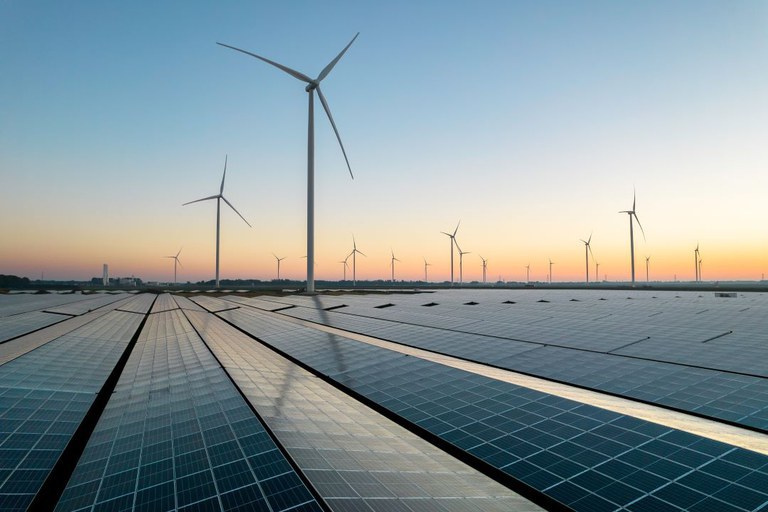Notícias
ECOLOGICAL TRANSFORMATION
Brazil’s Ecological Transformation Plan boosts GDP with additional 0.4% annual growth

- Credit: Gettyimages
A study launched on Thursday (17) in Brasília reveals the extent of progress resulting from measures proposed by the Brazilian Ministry of Finance’s [Ministério da Fazenda/MF] Ecological Transformation Plan [Plano de Transformação Ecológica/PTE]. The document titled Nota Informativa “Os impactos do Plano de Transformação Ecológica de acordo com as estimativas do Modelo Ômega do Banco Mundial” [Informative Note “The impacts of the Ecological Transformation Plan according to the estimates of the World Bank Omega Model”] presents the main information and results of a World Bank technical study carried out in cooperation with Brazil’s Undersecretariat for Sustainable Economic Development of the Secretariat for Economic Policy [Subsecretaria de Desenvolvimento Econômico Sustentável/Secretaria de Política Econômica/SPE/MF] regarding the economic and climate impacts of a set of economic and financial PTE incentives.
In the climate and environmental spheres, one of the main results is the reduction in greenhouse gas emissions from industrial processes and deforestation. According to the study, “the climate results from the implementation of PTE policies indicate a reduction of 136 million tons of CO² equivalent by 2050 (or 12%), compared to 2005, in greenhouse gas emissions, excluding emissions from deforestation”.
In the macroeconomic field, the highlight is the Gross Domestic Product (GDP) increase resulting from increased investments associated with the PTE. The Informative Note highlights, “Projections indicate that the GDP level will be boosted by the PTE by approximately 3% in the first years, remaining 2% higher than the baseline scenario throughout the period analyzed. By 2030, the PTE results in growth rates 0.4 percentage points above the baseline scenario.”
There are also projected positive impacts for the fiscal field since the higher level of activity increases the expected level of revenues. “One of the important benefits of the PTE is the improvement in the fiscal scenario, driven both by the greater expansion of the product and by the revenues generated by the carbon market. After an increase in initial spending, resulting from the greater public investment effort, projections indicate an improvement in the primary result after the first few years, reaching more than 0.5 percentage points higher than the baseline scenario in the first few years and remaining positive for almost the entire simulation. With this, the PTE is understood as complementary to the Ministry of Finance’s fiscal responsibility agenda, such as the New Fiscal Framework [Novo Arcabouço Fiscal] and measures to improve revenue collection.”
Measures
The calculations in the recently released report considered a series of measures included in the PTE, such as the regulation of the carbon market and new public investments in key sectors for the energy and climate transition within the scope of the New Growth Acceleration Plan [Novo Plano de Aceleração do Crescimento/Novo PAC].
In the case of the Novo PAC, the SPE reports that investments in green and sustainable infrastructure provided for in the program were incorporated, totaling approximately BRL 200 billion between 2023 and 2026, covering railways, ports, energy transmission, and sustainable fuels. “The spillover effects of these investments include the mobilization of private capital, boosting strategic sectors, and contributing to sustainable economic growth,” according to the Informative Note.
The study also includes the impact of policies to mitigate risks for investments in renewable energy and biofuels, which includes the launch of Sustainable Sovereign Bonds [Títulos Soberanos Sustentáveis] and the Fuel of the Future Law [Lei do Combustível do Futuro].
The measurement of the impacts generated by the PTE also considered the reduction in the risk premium for green sectors promoted by the advances in the structuring of the Brazilian Sustainable Taxonomy [Taxonomia Sustentável Brasileira] and Eco Invest Brasil.
The calculations presented in the report also include the results obtained from the restrictive stance on deforestation established by the current administration, with emphasis on the proposal to create the Tropical Forests Forever Fund (TFFF).
Likewise, there are impacts generated from incentivizing the use of sustainable agricultural practices, an action driven by the Financing Program for Sustainable Agricultural Production Systems [Programa de Financiamento a Sistemas de Produção Agropecuária Sustentáveis/RenovAgro].
Model
To prepare this analysis, the SPE used the OMEGA model (Open-Economy Multisector Endogenous Growth Assessment) developed by the World Bank and explained in the appendix to the note. The results of the OMEGA economic model applied to the PTE indicate that the transition to a sustainable economy can generate important benefits for Brazil, both in reducing greenhouse gas emissions and in economic growth. The simulation included an estimate of over 150 economic and sectoral variables, offering a detailed analysis of the impacts of the modeled policies.
The Ecological Transformation Plan is an action led by the Ministry of Finance, launched last year, but through synergy with other government ministries and branches. It aims to promote the transition to a low-carbon economy and also promote economic and social development, in addition to overcoming bottlenecks in Brazilian development.